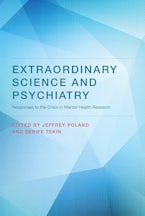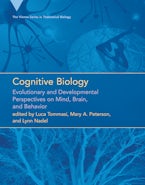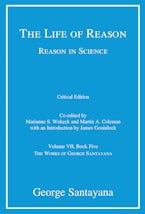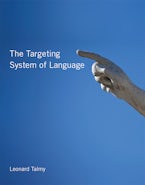Flanagan brings his down-to-earth, ever-engaging style to the deep quandary of the human condition: how to flourish as material beings in this material world. Eschewing spiritualist notions of 'enchantment', he argues passionately that 'empiricism is the best source of true wisdom about our nature and our situation.' In his inimitable way he takes on evolution, brain science, philosophy of mind, and the Abrahamic religions to develop a Buddhist-inspired vision of 'Eudaimonics': the art of human flourishing. The Really Hard Problem will appeal to philosophers, cognitive neuroscientists, religionists, and others open to materialist efforts to bridge the science/religion divide.
Gillian Einstein, Associate Professor, Departments of Psychology, and Public Health Science, University of Toronto
Ironically, contemporary philosophy almost never asks the philosophical questions that matter most deeply to our everyday lives. In fact those meaning of life questions have been deliberately avoided. Now, Owen Flanagan brings his trademark clarity, breadth of scientific knowledge, and wit to bear on questions that have seemed too big for analytic philosophy—what is the relation between religion and science, and what can we do to lead fulfilling and meaningful lives in a material world defined by scientific inquiry? He includes an exceptionally well-informed and thoughtful account of the Buddhist tradition, and empirical findings from 'positive psychology', as well as philosophical arguments. This book is a distinctive and compelling combination of skeptical rationality and gentle affirmation of the enchantment of the everyday.
Alison Gopnik, Professor of Psychology, University of California, Berkeley
Science tells us that we're imperfect products of biological trial and error, reconstituted remnants of exploded stars, and likely to be gone in the time it takes the Universe to make a cup of coffee. Some people find this unsettling, but Flanagan thinks we can handle it. With an open mind, good humor, encyclopedic knowledge, and philosophical tenacity, Flanagan tackles the Big Question: Can we find Meaning and Truth at the same time? Great reading for Homo sapiens.
Joshua Greene, Department of Psychology, Harvard University
Owen Flanagan explores the questions that matter most to us—life's magic, mystery, and meaning—in the most engaging, even entertaining, style. By expanding philosophy from a Eurocentric bias to include views from the East, Flanagan finds fresh answers to perennial questions. The Really Hard Problem is a delight.
Daniel Goleman, Psychologist, and Author of Social Intelligence
We should be grateful to Flanagan... for he conducts his inquiry with erudition, calm open-mindedness, cautious optimism, and ingenuity.
Daniel C. Dennett
The Philosophical Review
The book sparkles with thought and a likeable humour.
Steven Poole
The Guardian
Owen Flanagan has written an important book. A broad tradition in philosophy, starting at least with Socrates, continued by Plato and down the centuries, asks, 'What is a good life?'. English-speaking philosophy has largely ignored what Socrates and Plato started. Flanagan writes passionately that we find meaning in a space of science, arts, politics, ethics, and spirituality. We seek eudaimonia. He reopens the English-speaking mind.
Stuart Kauffman, MacArthur Fellow, Founding Director of The Institute for Biocomplexity and Informatics, The University of Calgary
With his characteristic wit, wisdom, and wide-ranging knowledge, Flanagan shows how ethics, brain science, philosophy of mind, and traditions of contemplative self-cultivation together can promote human flourishing and the search for meaning. Flanagan takes on the big questions and his answers to them deserve to be read by all.
Evan Thompson, Professor of Philosophy, University of Toronto, and author of Mind in Life: Biology, Phenomenology, and the Sciences of Mind












